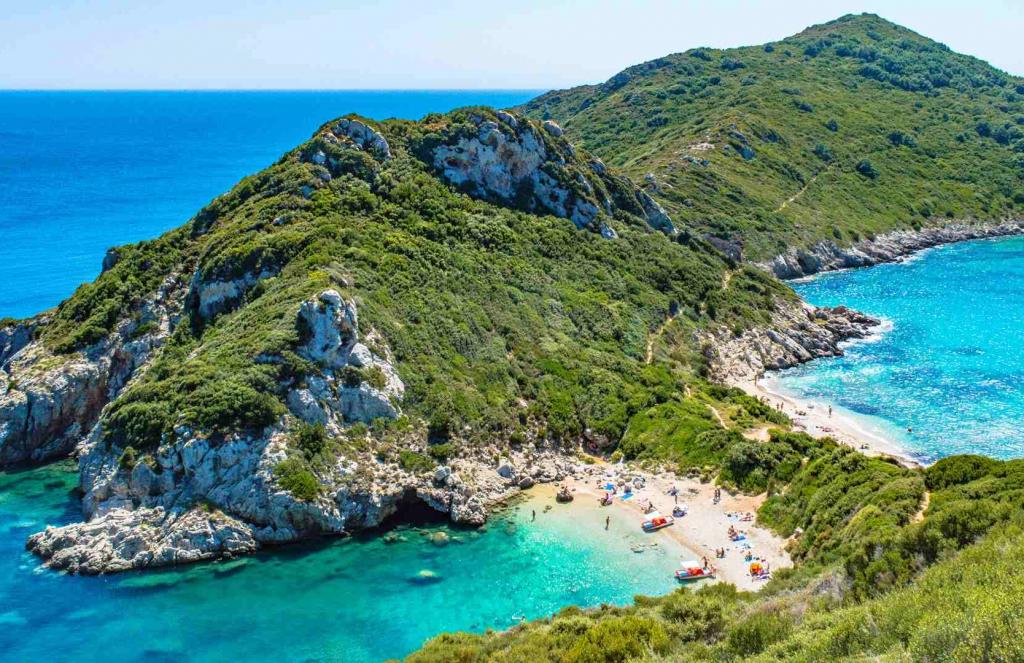Thessaloniki gets ready for its metro launch in November
The underground rapid transit lines have been under construction for almost two decades due to various project delays
 TheMayor.EU logo
TheMayor.EU logo 
Greece has thousands of beaches on its massive coastline and almost all of them are of excellent quality
According to a recent report by the European Environmental Agency, around 85% of bathing spots in the EU are of excellent status, but not all waters were made equal
Last week the European Environment Agency (EEA) published its annual report on the quality of bathing water in the European Union. The report shows that in 2021 almost 85% of Europe's bathing sites, both coastal and inland were graded as having an ‘excellent' water quality standard.
So, whether people choose to go to a Greek beach, an Austrian lake or a German river this summer, they can do that with the confidence that the water is clean. In fact, Austria offers the cleanest bathing waters in the whole EU. Sea-lovers, should not fear though, as Malta and Greece are not far behind.
Additionally, according to Hans Bruyninckx, EEA Executive Director, the continuous assessment and implementation of water quality standards, has led to a gradual, across the board improvement in Europe’s bathing sports over the past 40 Years. The share of excellent bathing waters has been continuously improving for nearly the past 20 years.
However, not all waters are equal, as the report found that an impressive 88% of coastal sites got the highest rating, compared to 78.2% of inland sites. The disparity is largely due to the natural self-purification cycles present in seas and oceans.
Many central European freshwater bathing spots are located on relatively small lakes and ponds as well as rivers with a low flow. These are more prone to bouts of pollution due to droughts or heavy summer rains.
In 2021, there were four countries where 95% of bathing waters were classified as excellent. These were Austria, Greece, Malta and Croatia. Austria is definitely the outlier here, as all of its waters are inland, while according to the research, an impressive 97.7% of spots were considered to have excellent, clean bathing water.
The runner ups to the big four are Malta, Bulgaria, Romania and Luxembourg, where all locations were classified as at least sufficient, making them a safe bet to dip your toes in, wherever you find yourself.
On the other end of the spectrum, however, there are six countries where 3% or more of the bathing waters are of poor quality. These are Estonia (two locations - 3.1%), France (99 locations or 3.0%), the Netherlands (34 locations or 4.6%), Latvia (two locations or 3.6%), Slovakia (one location or 3.1%) and Sweden (16 locations or 3.5%).
Swimming in sites with poor water quality can result in illness and places where this is the case must be closed for the season. Furthermore, countries need to institute measures to reduce pollution and reduce health hazards, according to the European Environment Agency’s Bathing Water Directive.
The good news is that if you are worried about the quality of your local beach or your chosen vacation destination, you do not need to guess and speculate. The EEA has launched an online tool, that lets you see all the registered bathing spots across the European Union and gauge their quality.

The underground rapid transit lines have been under construction for almost two decades due to various project delays

Now you can get your wine in Talence by paying directly in Bitcoin

That’s because the state has to spend money on updating the railway infrastructure rather than subsidizing the cost of the popular pass

Rethinking renewable energy sources for the urban landscape

The examples, compiled by Beyond Fossil Fuels, can inform and inspire communities and entrepreneurs that still feel trepidation at the prospect of energy transition

Now you can get your wine in Talence by paying directly in Bitcoin

The 10th European Conference on Sustainable Cities and Towns (ESCT) sets the stage for stronger cooperation between the EU, national and local level to fast track Europe's transition to climate neutrality.

At least, that’s the promise made by the mayor of Paris, Anne Hidalgo

The underground rapid transit lines have been under construction for almost two decades due to various project delays

At least, that’s the promise made by the mayor of Paris, Anne Hidalgo

Hostal de Pinós is located in the geographical centre of the autonomous region

Despite its church-y name, the district has long been known as the hangout spot for the artsy crowds

Urban dwellers across the EU are having a say in making their surroundings friendlier to people and the environment.

Forests in the EU can help green the European construction industry and bolster a continent-wide push for architectural improvements.

Apply by 10 November and do your part for the transformation of European public spaces

An interview with the Mayor of a Polish city that seeks to reinvent itself

An interview with the newly elected ICLEI President and Mayor of Malmö

A conversation with the Mayor of Lisbon about the spirit and dimensions of innovation present in the Portuguese capital














